Meet a Nebraska woman working for more inclusive and accessible birding in the state.
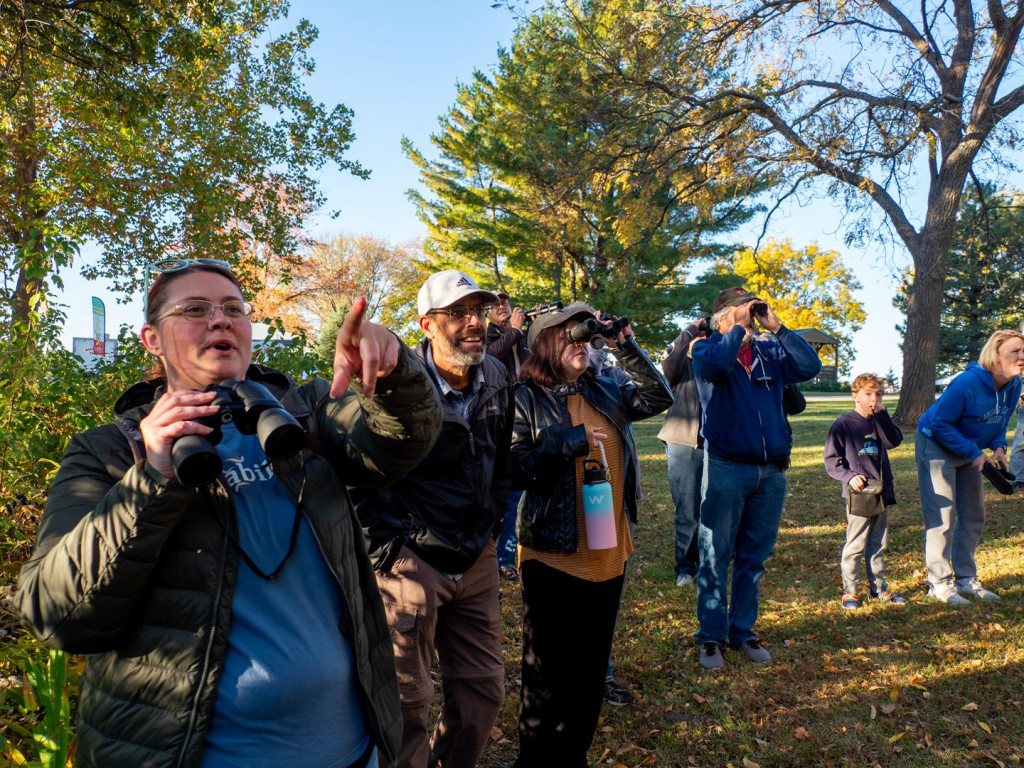
By Renae Blum
In conversation, Cassandra Dean smiles easily and laughs often. But her eyes well up with tears remembering a birding event she led last fall at Indian Cave State Park.
Hosted on a newly-built trail designed to be accessible, Dean’s outing was described as “birding for everybody and every body” – inclusive to people with disabilities and other health concerns. At the event, Dean met a mother who brought her son, who has muscular dystrophy. He was perhaps 8 or 9 years old.
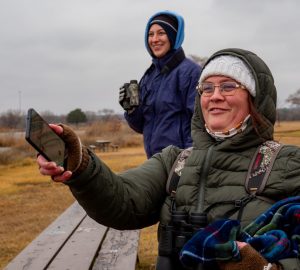
“I think he was more passionate about birds than I was that day,” Dean said. “His eyes just lit up.”
The mother thanked Dean and said that as her son’s disease progressed, they wouldn’t be able to make it to events as far away as Indian Cave. They needed something closer to their Omaha-area home.
It’s a sentiment Dean hears often at her events. She sees a lot of interest and excitement, but also many who need more opportunities closer to them. Dean is acutely aware of the immense need, but also of her limitations, both as one individual and a volunteer, and as a person with a disability herself.
For now, though, she’s taking it step by step. This is just the beginning.
How It Started
Dean, who lives in Lincoln, volunteers with Birdability, a nonprofit working to share birding with people who have disabilities or other health concerns.
Birdability focuses on people with mobility challenges, blindness or low vision, chronic illness, intellectual or developmental disabilities, mental illness, and those who are neurodivergent, deaf or hard of hearing or who have other health concerns.
The nonprofit functions through volunteers called “captains”; currently there are 42 of them spread across 27 states. Dean is Nebraska’s sole captain.
Dean had been birding for about three years when she discovered Birdability. “I was noticing that when I was going places for my hikes to look at birds, it wasn’t accessible, especially with my three autoimmune diseases,” Dean said.
Then in 2018, she read an article about Virginia Rose, who had just founded Birdability in Austin, Texas.
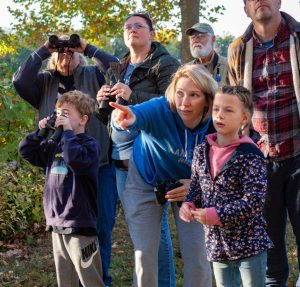
“She was talking about how she was partnering with Travis Audubon in Texas, making the trails more accessible so she can bring her friends and go birding,” Dean said. “And I was like, ‘Oh! That would be so cool. I wish I could do something like that up here in Nebraska.’”
She contacted Rose in late 2019, and the two talked for over an hour on the phone. Dean agreed to become a Birdability Captain in Nebraska and start her own efforts toward a more inclusive birding community in the state.
A Birdability Captain can choose what to work on, depending on his or her interests. For instance, they might lead accessible birding events, meet with local organizations or survey local sites for their accessibility to add to the Birdability GIS map. Dean does a little of everything.
“She’s every single thing I want a Birdability Captain to be,” Rose said. “She takes the initiative and makes what she wants to have happen, happen. She takes it all so seriously, which is such a joy for me to watch.”
Dean began her efforts as Nebraska’s Birdability Captain in 2020, and since then, has led about 10 to 15 accessible birding outings each year across the state. Some are open to the public, while others are for private groups, such as nursing homes and an organization serving neurodivergent children.
Dean has also surveyed over half a dozen Nebraska birding sites for their accessibility, adding them to Birdability’s crowd-sourced map. To do this, Dean visits a site and makes detailed notes for potential visitors. She describes things like trail length, slope, surface and width; access to accessible parking and restrooms; and many other concerns, like trail lighting, shade cover, ticks and nearby noise.
In addition, Dean partners with organizations like Audubon Great Plains and Nebraska Game and Parks to help them host events and improve accessibility at their sites.
At a Birdability Event
All of Dean’s public birding outings are hosted at accessible sites. (See the sidebar below for details on upcoming events.) Some outings are stationary, others aren’t. In her fliers and event descriptions, Dean goes into detail about what to expect, so people can decide for themselves if the event will be accessible for them.
During her events, Dean allows the group to choose how they want to experience the day. If most are wanting to sit or to move around, that’s what they do. If an attendee is using a wheelchair, he or she will lead the group’s pace.
At every event, Dean encourages the group to practice something called “slow birding.” Rather than shouting out bird names and hastily marking off checklists, they take their time, carefully observing the birds’ songs and behaviors. It’s a more meditative practice, and a healing one, Dean said.
In fact, that’s how she fell in love with birding – practicing slow birding while watching sandhill cranes.
“I am happiest when I am birding,” Dean said. “It’s a very healing thing for me.”
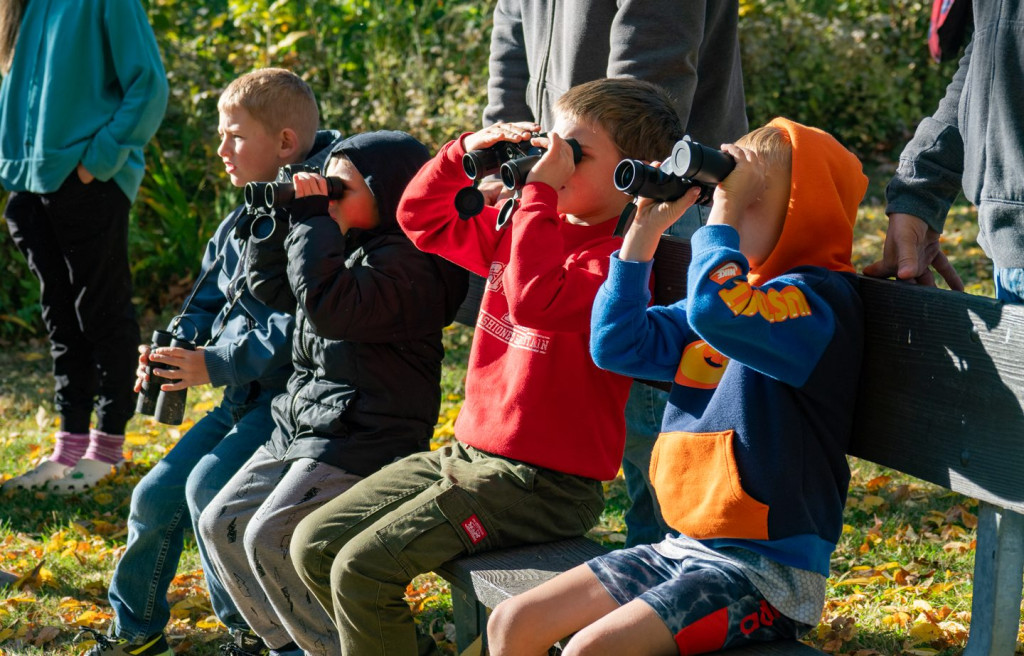
Nebraska’s Birding Landscape
The Nebraska organizations Dean has reached out to have been receptive to her message, but there’s still lots to do. The No. 1 barrier for birders who have disabilities – both in Nebraska and nationwide, according to other Birdability Captains – is transportation, Dean said.
“Most city parks don’t have bus access,” Dean said. “Or if [birders with mobility challenges] do go to an accessible outing, they have to have someone drive them.”
Offering transportation to her events is one of Dean’s long-term goals.
Another barrier is a lack of accessible trails. Many of Nebraska’s trails have steep slopes or lack benches. Dean was astonished and excited when staff at Indian Cave State Park recognized a lack of accessible trails at the park and had one built especially for her events.
“I was very happy,” Dean said. She plans to lead another event at Indian Cave using this trail in May.
Dean also wants to see more accessible bird blinds and webcams so people can watch birds from home. She’s actively addressing these issues with local organizations.
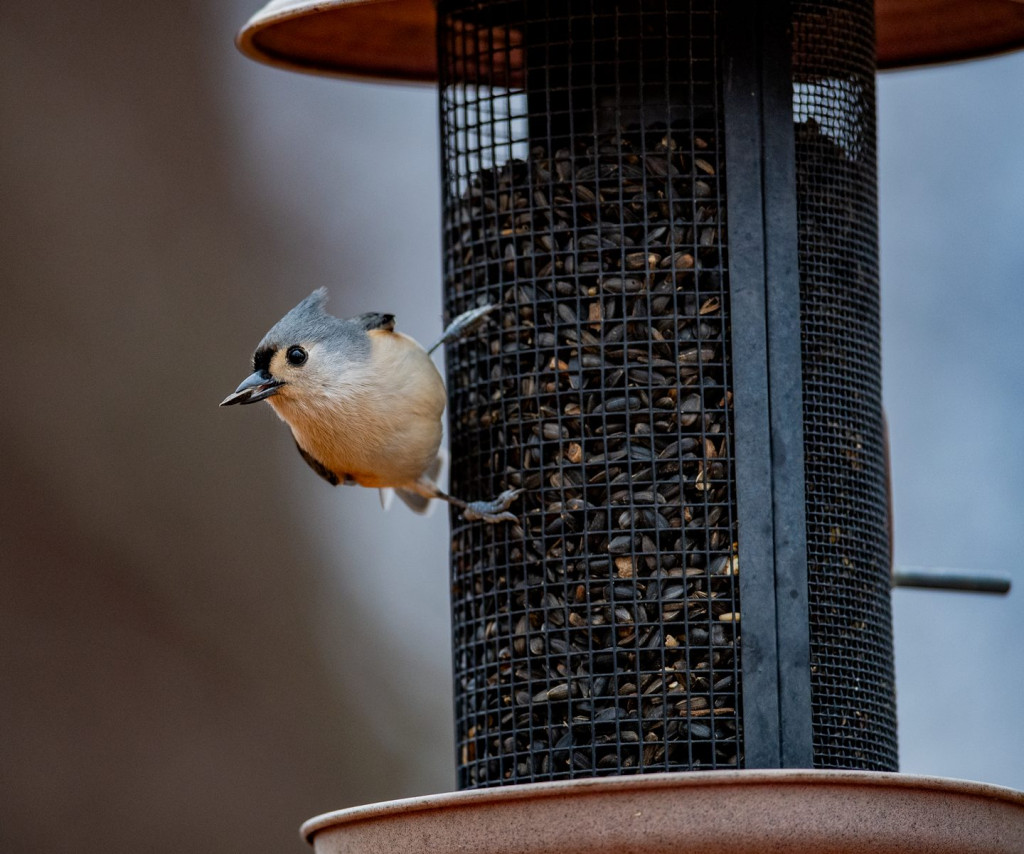
A Commitment to Make Change
This kind of leadership role doesn’t always come naturally for her, Dean said. Her autoimmune diseases cause severe pain, brain fog and fatigue, leading her to have social anxiety around people.
“But also, I am one of those driven people where if I see a need, I go after it,” Dean said with a laugh. “Everybody should be able to enjoy birding.”
It’s important enough to her that she makes time for Birdability in a life that’s already very busy. Dean is the director of Gage County Historical Society and Museum in Beatrice, where she works five days a week. The other two days, she works in an antique store.
“When I do have days off, it’s when I do my Birdability. Basically, that’s my life,” Dean said, laughing.
Aside from birding, Dean enjoys cooking, art, reading and photography.
She hopes that in the future, she can find more people willing to help her in Nebraska and nearby states.
For now, though, she’s staying focused on what she can do.
“I’m just doing one thing at a time,” Dean said. “I’m not going out there and changing the whole world yet. I’m just doing one park at a time, one bird blind at a time.”
And for many Nebraskans with disabilities, it’s making a difference.
To learn more about Birdability and how you can get involved, visit Birdability.org. Find an interactive map and information on accessibility at birding sites in Nebraska – and around the world – at Gis.Audubon.org/Birdability.
Public Birdability Events
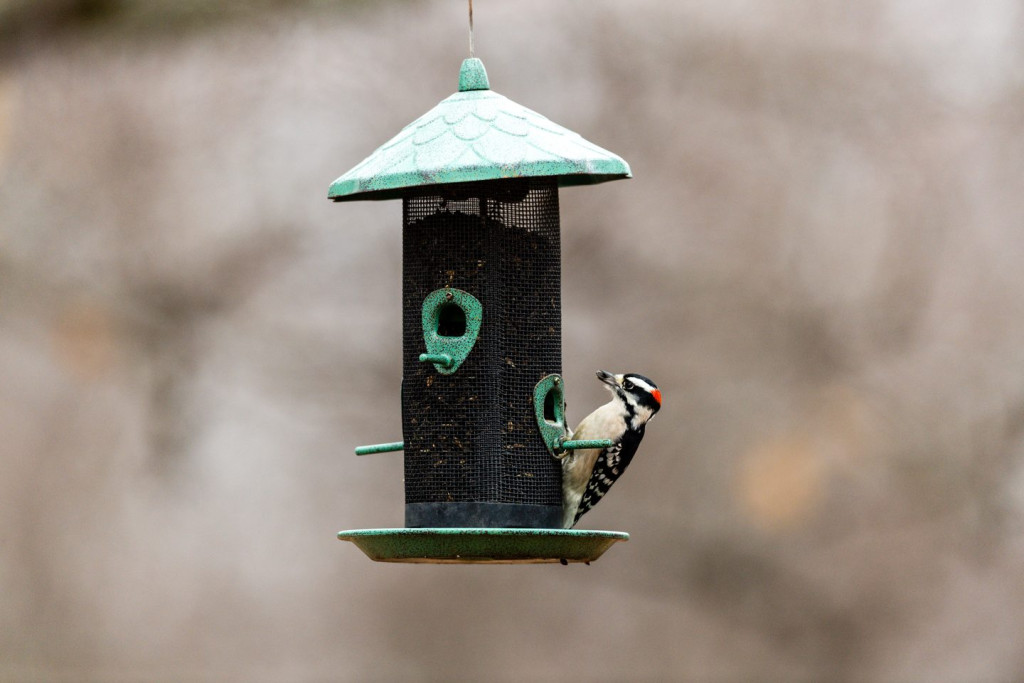
Interested in attending a public Birdability event in Nebraska? Below are some planned for 2024:
Accessible Bird Outing
April 23, 8-9 a.m., Spring Creek Prairie Audubon Center in Denton. Join Dean for a serene and inclusive birding morning designed to accommodate participants of all abilities. The group will meet in the picnic area just a short walk from the parking lot. Trails are less than half a mile, on an accessible, hardpacked granite surface. Accessible parking and restrooms are available, as well as accessible birding equipment like monoculars, binoculars and noise-canceling headphones. Admission is free, but registration is required; sign up at Springcreek.audubon.org.
Birdability Hike
April 27, 9-10:30 a.m., Lauritzen Gardens in Omaha. This leisurely birding experience will take place during the height of spring migration at Lauritzen Gardens. It’s for all skill levels and those with mobility or health concerns. Led by the president of the Audubon Society of Omaha, Christine Prescott, the route will be approximately 1.5 miles in total and will be exclusively on asphalt and concrete, with several benches and stops along the way. Wheelchair-accessible bathrooms will be available at the start and end of the tour. Pre-registration is required; learn more and register at LauritzenGardens.org.
Slow Birding
May 11, 9-10 a.m., Spring Creek Prairie Audubon Center in Denton. As part of Spring Creek Prairie’s Super Bird Saturday, Dean will lead a relaxed outing focused on slow birding. This sit-down event will be at the bird feeders by the accessible picnic area. Accessible parking and restrooms are available. Stay to enjoy a family bird fair at 10 a.m. and a birding-by-ear workshop at 8 a.m.
Birding for Everybody and Every Body
May 25, 3-4 p.m., Indian Cave State Park by Shubert. Everyone is welcome for this free, inclusive birding activity, including beginning birders and families with small children. Meet Dean at the museum gazebo for a 30-minute guided birding outing through the new trail near the pollinator gardens. The birding trail is a 1/4-mile loop, with no benches and lots of shade cover. It is a mowed grass trail with a slight slope. At 3:30 p.m., join the group for a 30-minute Big Sit at the bird feeders. Bring your own lawn chairs; binoculars will be available to borrow, or bring your own. Afterward, stay for more activities during the park’s Migratory Birding Day event. Paved parking and restrooms are available at the museum. A Nebraska state park entry permit is required.
Birding is for Everyone and Everybody
June 15 at 2 p.m.; Aug. 31 at 2 p.m., Rock Creek Station State Historical Park by Fairbury. Meet Dean at the Visitor Center for a free birding activity that is accessible and inclusive, open to everyone including beginner birders and families with small children. Join a guided bird outing or view birds from the Visitor Center lobby. The birding trail is a mowed grass trail with a slight slope. It is about 1 mile, a half mile in and a half mile out, from the Visitor Center. Picnic table seating will be available about a quarter mile from the Visitor Center. The guided outing will take about one hour and will be limited to the first 20 people. Birding may also be done from the Visitor Center lobby by viewing birds at the feeding station through the large picture windows. A Nebraska state park entry permit is required.
Birding is for Everyone and Everybody
June 19 at 8:30-9 a.m., Riverside Park in Beatrice during Homestead Days. Meet at the picnic shelter in Riverside Park. The paved trail will be 1/4 mile. Accessible parking and restrooms are available. Please bring binoculars, but if you don’t have any, binoculars will be provided.
Birdability Week
Oct. 21-27, 2024. Please keep an eye out for activities during this special week. Stay tuned to Birdability.org.
 Nebraskaland Magazine
Nebraskaland Magazine


